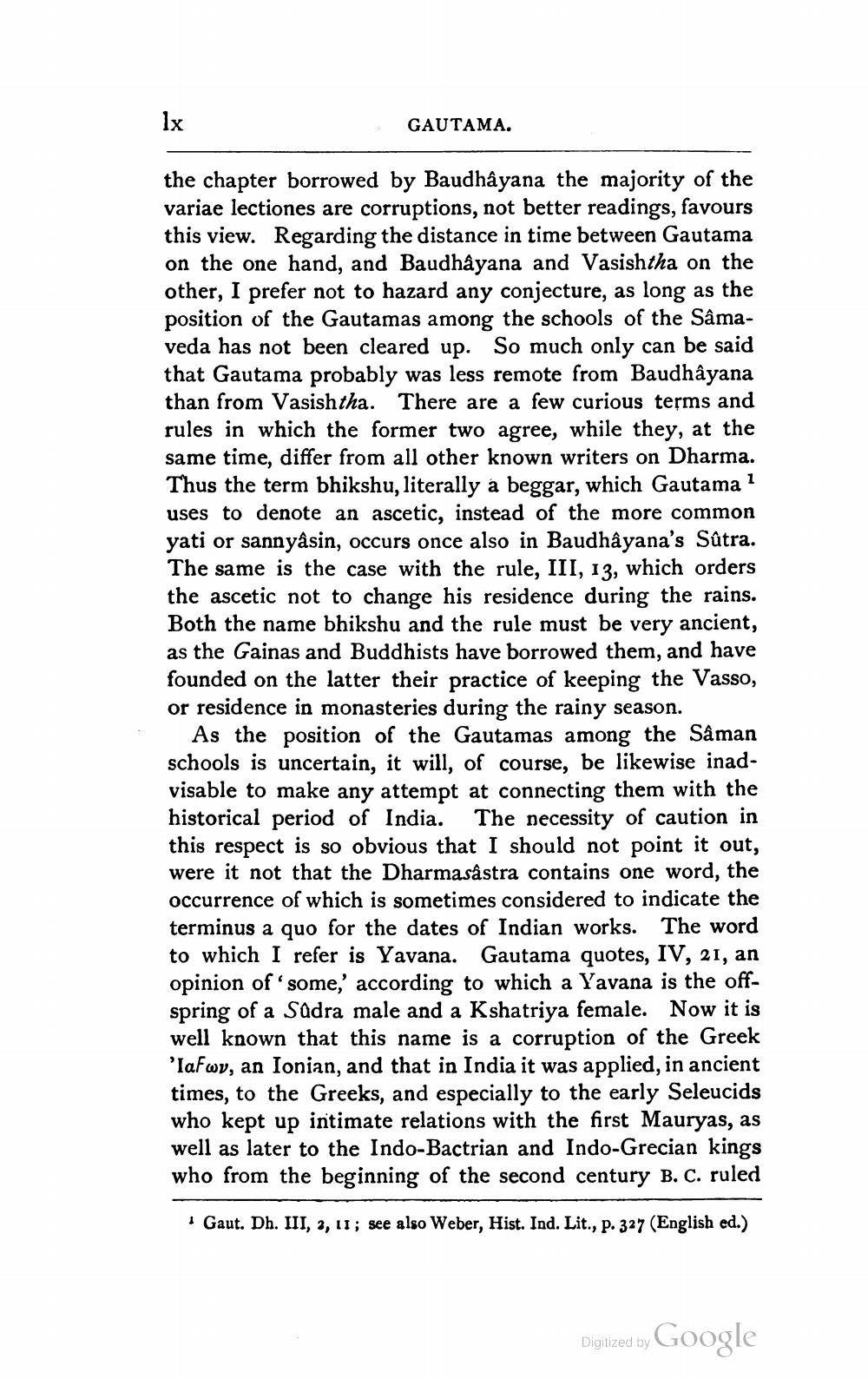________________
lx
GAUTAMA.
the chapter borrowed by Baudhâyana the majority of the variae lectiones are corruptions, not better readings, favours this view. Regarding the distance in time between Gautama on the one hand, and Baudhâyana and Vasishtha on the other, I prefer not to hazard any conjecture, as long as the position of the Gautamas among the schools of the Sâmaveda has not been cleared up. So much only can be said that Gautama probably was less remote from Baudhâyana than from Vasishtha. There are a few curious terms and rules in which the former two agree, while they, at the same time, differ from all other known writers on Dharma. Thus the term bhikshu, literally a beggar, which Gautama 1 uses to denote an ascetic, instead of the more common yati or sannyâsin, occurs once also in Baudhâyana's Sûtra. The same is the case with the rule, III, 13, which orders the ascetic not to change his residence during the rains. Both the name bhikshu and the rule must be very ancient, as the Gainas and Buddhists have borrowed them, and have founded on the latter their practice of keeping the Vasso, or residence in monasteries during the rainy season.
As the position of the Gautamas among the Sâman schools is uncertain, it will, of course, be likewise inadvisable to make any attempt at connecting them with the historical period of India. The necessity of caution in this respect is so obvious that I should not point it out, were it not that the Dharmasâstra contains one word, the occurrence of which is sometimes considered to indicate the terminus a quo for the dates of Indian works. The word to which I refer is Yavana. Gautama quotes, IV, 21, an opinion of 'some,' according to which a Yavana is the offspring of a Sûdra male and a Kshatriya female. Now it is well known that this name is a corruption of the Greek 'Iafov, an Ionian, and that in India it was applied, in ancient times, to the Greeks, and especially to the early Seleucids who kept up intimate relations with the first Mauryas, as well as later to the Indo-Bactrian and Indo-Grecian kings who from the beginning of the second century B. C. ruled
1 Gaut. Dh. III, 2, 11; see also Weber, Hist. Ind. Lit., p. 327 (English ed.)
Digitized by
Google




